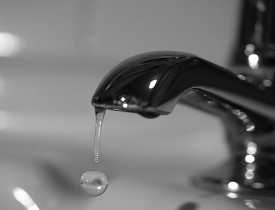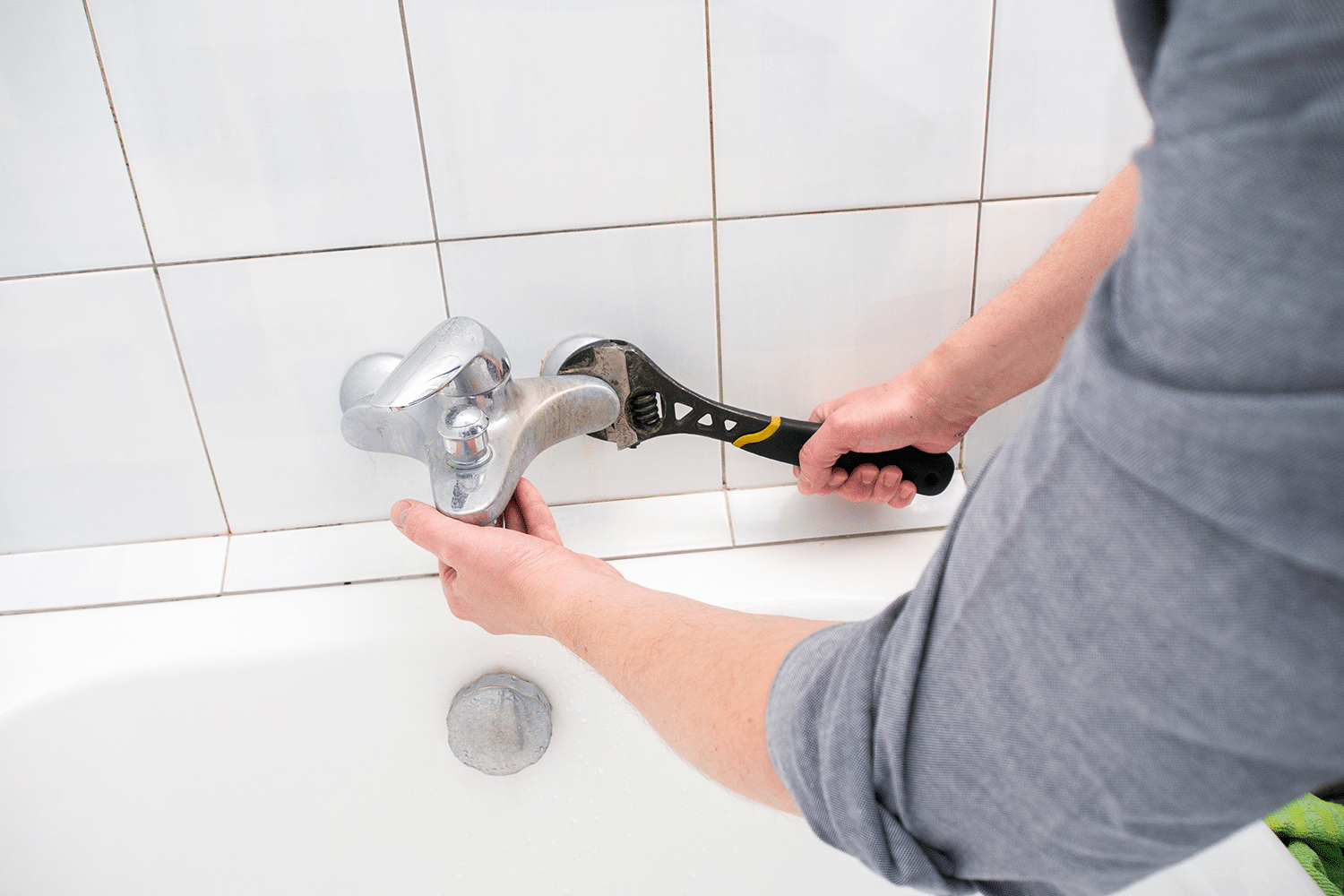Why It's Important to Resolve a Dripping Faucet
Why It's Important to Resolve a Dripping Faucet
Blog Article
How do you actually feel when it comes to Should I Repair or Replace a Leaky Faucet??

Dripping taps could feel like a minor hassle, yet their influence goes beyond just the annoyance of the noise. From drainage to sustaining unneeded financial costs and wellness dangers, overlooking a trickling tap can result in numerous effects. In this post, we'll look into why it's crucial to resolve this common home problem immediately and efficiently.
Wastage of Water
Environmental Effect
Trickling faucets add considerably to water wastage. According to the Epa (EPA), a solitary faucet dripping at one drip per secondly can lose greater than 3,000 gallons of water annually. This not only pressures water resources yet likewise affects environments and wild animals dependent on them.
Step-by-Step Guide to Repairing a Dripping Faucet
Tools Needed
Before trying to deal with a leaking faucet, gather the necessary devices, consisting of an adjustable wrench, screwdrivers, replacement components (such as washers or cartridges), and plumber's tape.
Usual Tap Issues and Their Solutions
Recognize the type of faucet and the specific concern triggering the drip. Typical problems consist of damaged washing machines, rusty shutoff seats, or defective O-rings. Refer to supplier instructions or on-line tutorials for detailed advice on fixings.
Financial Costs
Increased Water Expenses
Past the ecological impact, dripping taps can blow up water bills substantially. The built up wastefulness gradually translates into higher energy expenses, which can have been prevented with prompt repairs.
Prospective Residential Or Commercial Property Damage
Furthermore, long term dripping can result in harm to components and surfaces surrounding the tap. Water buildup can trigger staining, rust, and even structural problems if left unattended, leading to extra repair service expenses.
Health Problems
Mold and Mold Development
The consistent existence of dampness from a dripping tap develops a suitable atmosphere for mold and mold development. These fungis not just compromise indoor air top quality yet also present wellness threats, particularly for people with respiratory system conditions or allergies.
Waterborne Conditions
Stationary water in dripping faucets can end up being a breeding place for germs and various other microorganisms, boosting the threat of waterborne illness. Pollutants such as Legionella germs prosper in stagnant water, potentially resulting in severe ailments when consumed or inhaled.
DIY vs. Professional Repair work
Advantages and disadvantages of DIY Repair Service
While some may try to take care of a trickling tap themselves, DIY repair work feature their very own set of challenges. Without correct understanding and tools, do it yourself attempts can exacerbate the problem or lead to incomplete fixings, lengthening the problem.
Advantages of Hiring an Expert Plumber
Working with a professional plumber guarantees that the underlying source of the dripping tap is addressed properly. Plumbing technicians have the proficiency and devices to diagnose and repair tap issues effectively, conserving time and minimizing the danger of additional damages.
Environmental Responsibility
Private Payment to Preservation
Taking responsibility for repairing dripping faucets aligns with broader initiatives towards water preservation and environmental sustainability. Every person's actions jointly make a substantial effect on maintaining precious resources.
Lasting Living Practices
By focusing on prompt repair services and adopting water-saving practices, people contribute to lasting living techniques that benefit both present and future generations.
Safety nets
Regular Maintenance Tips
To avoid dripping faucets, perform regular upkeep such as cleansing aerators, inspecting for leakages, and replacing damaged parts without delay. In addition, take into consideration mounting water-saving gadgets or upgrading to a lot more efficient components.
Importance of Prompt Repairs
Dealing with leaking faucets as soon as they're discovered protects against additional water wastage and possible damage, inevitably saving both water and cash in the future.
Effect On Residential Or Commercial Property Worth
Understanding of Well-Maintained Property
Keeping a property in good condition, consisting of resolving maintenance concerns like trickling taps, improves its perceived worth and value among possible purchasers or occupants.
Influence on Resale Value
Properties with properly maintained plumbing components, including faucets, command higher resale worths in the real estate market. Addressing dripping taps can contribute to a favorable impression during residential or commercial property examinations and negotiations.
Verdict
Attending to a dripping tap exceeds plain benefit; it's a crucial step toward conserving water, minimizing financial expenses, and securing health and wellness and residential property. Whether via do it yourself repairs or professional help, doing something about it to take care of trickling taps is a tiny yet impactful way to advertise accountable stewardship of sources and contribute to a much healthier, much more lasting future.
How to Fix a Leaky Faucet: Step-by-Step Repair Guide
A leaky faucet may seem like a simple annoyance, but if it's not fixed promptly, that leak could cost hundreds to potentially thousands. From water damage to mold, mildew, and high water bills, even a tiny leak can be catastrophic if left unattended. Damage like this can even affect the overall value of your home, so it's important to take the right approach for leaky faucet repair. You may need the help of a plumber in some cases, but we've got a few tips you can try on how to fix a leaky faucet before calling the pros.
Four Faucet Types
When you're learning how to fix a leaky faucet, the first step is knowing what kind of faucet you're working with! There are four common types.
Cartridge Faucets
Cartridge faucets come in one- or two-handled varieties. In one-handled cartridge faucets, hot and cold water combines in a single cartridge. In the two-handled versions, hot and cold water are controlled separately and mixed in the faucet.
Ball Faucets
Ball faucets have a single lever you push up and down to adjust the pressure and rotate to change the temperature. A slotted metal ball controls the amount of water allowed into the spout.
Compression Washer Faucets
They're the oldest type of faucet, but they're still used in many homes — especially older ones. Compression faucets have two separate handles that, when turned, raise or lower the washer that seals a water valve. This valve stops water from flowing through the faucet when it is turned off.
Disc Faucets
Disc faucets rarely need to be repaired due to their maintenance-free design. The water flow is controlled by two discs — the upper one raises and lowers against a fixed lower disc, creating a watertight seal. If your disc faucet starts leaking, you may need to replace the seals or clean residue buildup from the inlets.
Fixing a Leaky Faucet
Step 1: Turn Off the Water
Whether you're learning how to fix a leaky bathtub faucet or how to fix a leaky kitchen faucet, always turn off the water supply to your working area when you're fixing a leak. The last thing you want is a flood added to your list of things to fix.
Look for the shutoff valves below your sink or around the tub and turn them clockwise to stop the water flow. If your faucet doesn't have shutoff valves, you may need to turn off the water for the whole house. Check to make sure it's off by turning the faucet on. If nothing comes out, you're ready to start the repair.
Step 2: Take Apart the Faucet
How you disassemble your faucet depends on the type of fixture you have. You can use a flathead screwdriver to remove the caps on top of the handle or handles for cartridge and compression faucets. Inside, you should see handle screws. Unscrew these with a screwdriver to remove the handle.
Disc- and ball-style faucets will typically have an inlet screw near the handle, and removing that will reveal the interior of the faucet.
Detach the Valve Stem
For cartridge- and compression-style faucets, you'll see the inner valve stem or cartridge once you remove the faucet handles. If you have a compression faucet, unscrew the brass valve stem. If you have a cartridge faucet, pull out the cartridge. If your cartridge has been in place for a while, it may require some tools or extra force to remove it due to mineral deposits.
Examine and Replace Parts
Once you've removed the parts, check them out to confirm what needs to be replaced. You may see corroded rubber washers, O-rings, stems, or cartridges. On a ball-style faucet, check the seats and springs for damage.
If you need to repair a leaky disc faucet, check the inlet and seals on the lower disc.
Once you determine what parts must be replaced, visit your local hardware store. Bring the damaged parts with you to ensure you can purchase the correct components to replace them.
Clean Valves and Faucet Cavity
If you've removed a stem or cartridge, you may notice mineral buildup in the faucet's threads. Use white vinegar to clean the valve seat by soaking it for a few minutes, then scrub it away with a soft toothbrush and rinse with warm water. You can also clean the interior of the faucet in the same way.
Reassemble the Faucet
Once your faucet is cleaned and the required parts have been replaced, it's time to reassemble it. Put the pieces back together and slowly turn the water supply back on. Doing this slowly is crucial because too much initial water pressure can damage the new hardware you've just installed.
https://homewarranty.firstam.com/blog/how-to-fix-leaky-faucet

I ran across that page on Why Are My Faucets Dripping (And Can I Fix It Myself)? while scouting around the internet. In case you enjoyed our article kindly remember to share it. Thank you so much for taking the time to read it.
Report this page